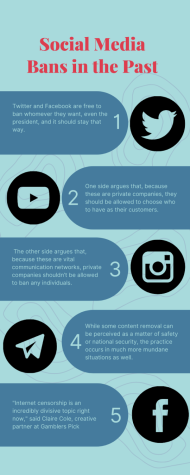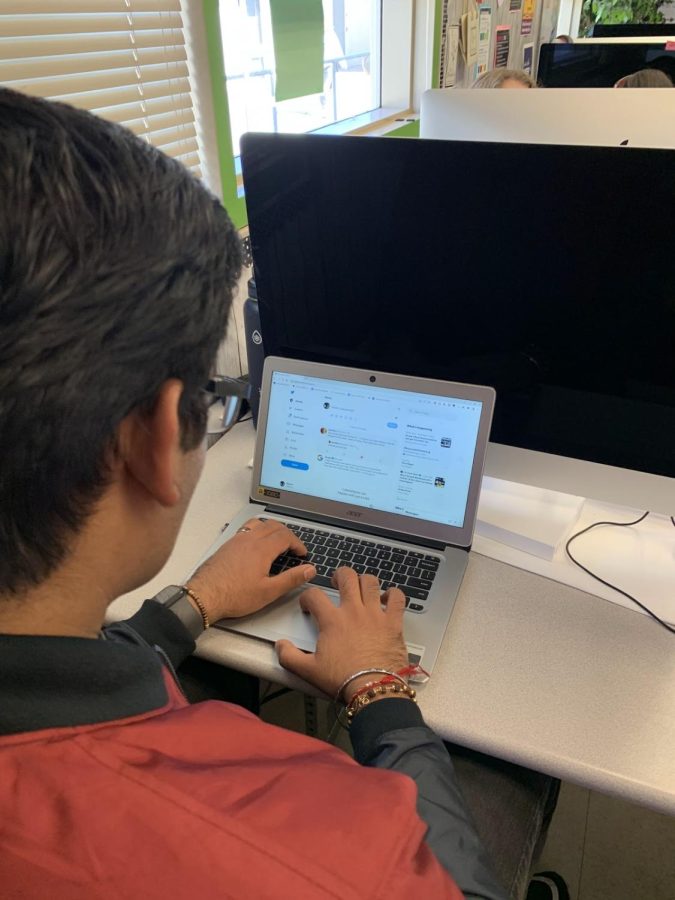Should social media companies ban users?
Many users saw Tate’s content online.
October 6, 2022
Andrew Tate was a social media sensation over the summer. However, recently, he was banned from all social media (Instagram, Twitter, and even TikTok) after being accused of repeatedly spreading misogyny.
How do executives at social media companies decide who to ban? Is it all just a social movement, or is there an algorithm that handles it all?
Rebecca van Burken from reason.org says that “it is extremely concerning as to how much power social media has to silence any voices it pleases.” This is growing to be a big concern because there seems to be no regulation or specific pattern to “cancellation”.
However, the ownership status of the platforms cannot be the deciding factor because both sides in the debate rely on the fact that they are privately owned to support their opposing claims. We require a different perspective on the issue. Thankfully, we have one.
In accordance with a well-established legal principle, certain business categories, referred to as common carriers, are given preferential treatment in terms of any protections they may enjoy and any additional rules they may be required to follow.
Therefore, establishing a system where social media platforms could be classified as common carriers, either at the platform owner’s discretion or as a result of criteria established by the system, would not end social media bans.

However, it is almost certain that a third party organization would be in charge of enforcing the banning orders as well as setting the guidelines for what can and cannot be posted on these websites.
In regards to Tate, some argue that his speech is often taken out of context to promote his “Hustler’s University” (a Multi Level Marketing Scheme that teaches students wealth creation methods helpful in “escaping the matrix”), the issue is that his speech is brainwashing young men into believing that toxic masculinity and misogyny is healthy.
So, we can conclude that it wasn’t specifically the “out-of-pocket”information that Tate spread over the internet. The main issue was in fact, the extent of his reach.
In retrospect, we need to consider the role of social media in this new decade. One one hand, it is viewed as a technology platform where common people can exercise their first amendment rights. But as of late, that role has transformed into social media being a curator of content.
With no pattern in sight, it does appear as the cancellation of celebrities and sensations like Trump and Tate.
And even after this ban, Tate claims to have his life intact, boasting his luxurious lifestyle with mansions, supercars, and many streams of passive income.
So was this social media ban worth it in the first place? Is there any evidence of violence as a result of Tate’s overwhelming presence over social media? And the most prevalent question: is social media cancellation just dependent on social conformity, or is there a pattern?
Although there may be reasons behind social media bans, there should be more concrete regulations behind them.




